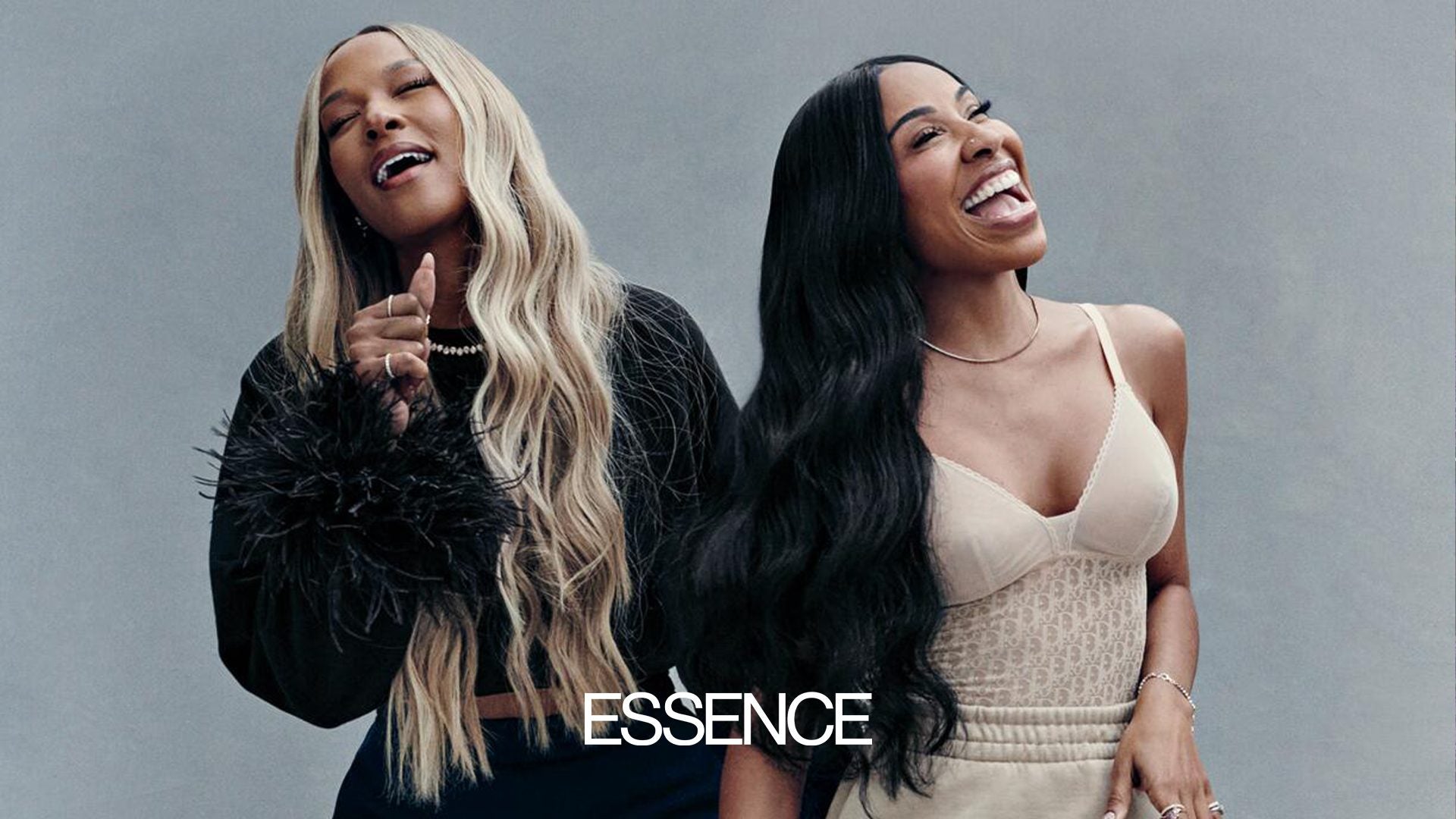
This story originally appeared in the March/April issue of ESSENCE, available on stands now.
When the pandemic cast us out of our social settings and into isolation at home, the popularity of podcasts skyrocketed. Though the talk radio–style medium had been around for more than 15 years at that point, interest hit a fever pitch as more eyes and ears sought new ways to fill the long days. Everyone was eager to hear from both veteran creators and an onslaught of new entrants.
Fast-forward to 2025. There are now more than 2.7 million active podcasts in existence, according to Podcast Industry Insights. These audio and visual platforms inform, educate, entertain and—increasingly in recent years—annoy. Dead-horse discussions about dating etiquette (Is $200 for a first date too much?), gender wars (What do you bring to the table?), hyperbolic “high-value” hot takes and thinly veiled misogynoir (Accountability, anyone?) dominate social media snippets from mostly male-led platforms. As a result, a cacophony of cries to turn off the mics and burn the audio mixers is rising.
But there is hope. In a climate overcrowded with tiresome discourse, these seven Black women are carving their own lanes by being unapologetically outspoken, insightful and honest—and doing it with flair. Diving into subject matter outside the toxicity-tinged cultural critiques and relationship rhetoric, these ladies are thriving with unique viewpoints, commiserative conversations and untapped topic niches.
Whether their focus is call-in advice, comedic commentary, candid girl talk, or cultural dissections or health and wellness, these women lead the discussion with expertise, humor and vulnerability. And with podcasts quickly becoming the next frontier of visual media, each woman also brings a unique personal glam that aids the narrative. Whether it’s Lex P and Drea Nicole’s “baddie” aesthetic on Pour Minds, Savannah James and April McDaniel’s casual luxe on Everybody’s Crazy, or the authentically relaxed cool-girl style of Black People Love Paramore’s Sequoia Holmes, beauty is the B-mic.
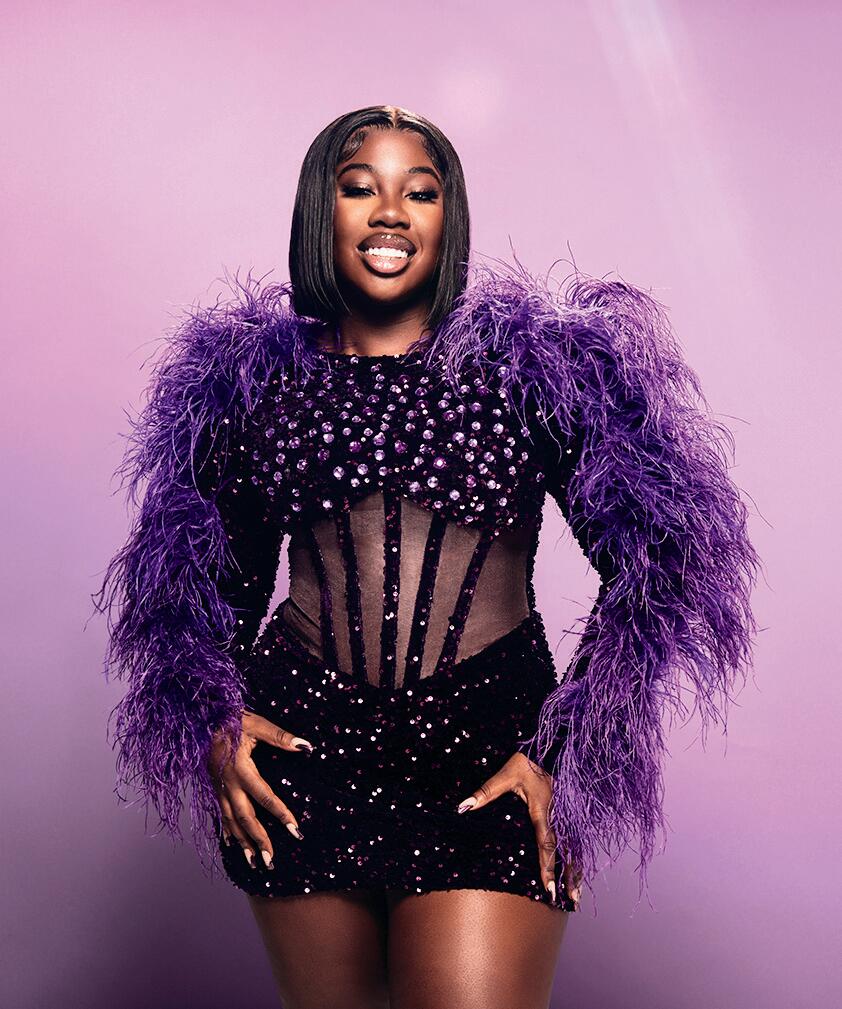
For Madame Joyce, host of the award-winning U.K.–based podcast Cocktails and Takeaways, the focus is on examining the shared experiences of Black women from both sides of the pond—in a judgment-free zone and with a healthy dose of humor. “As Black women, we’ve just been taught to get on with it. ‘This is life. Move on,’ ” Madame Joyce says. “I feel like there are so many things that we deal with that we haven’t vocalized. I’m a Nigerian woman, so what I was told is, ‘Keep your problems in your house.’ That’s a common saying. You keep your issues to yourself. You don’t share things.”
With an emphasis on open, off-the-cuff conversation, the host creates an avenue for women to feel less alienated and “otherized” by the things they’ve been through. Though she has found a loyal fan base and international success with her frank and boisterously led discussions, Joyce says one of her biggest challenges in navigating such a male-dominated field has been getting picked apart over her looks.
“Even the smartest of women are not judged by the things they say but by their appearance,” she says—noting that regardless of her subject matter, commenters have pounced on her if she’s had so much as a hair out of place. “That’s something I realized.”
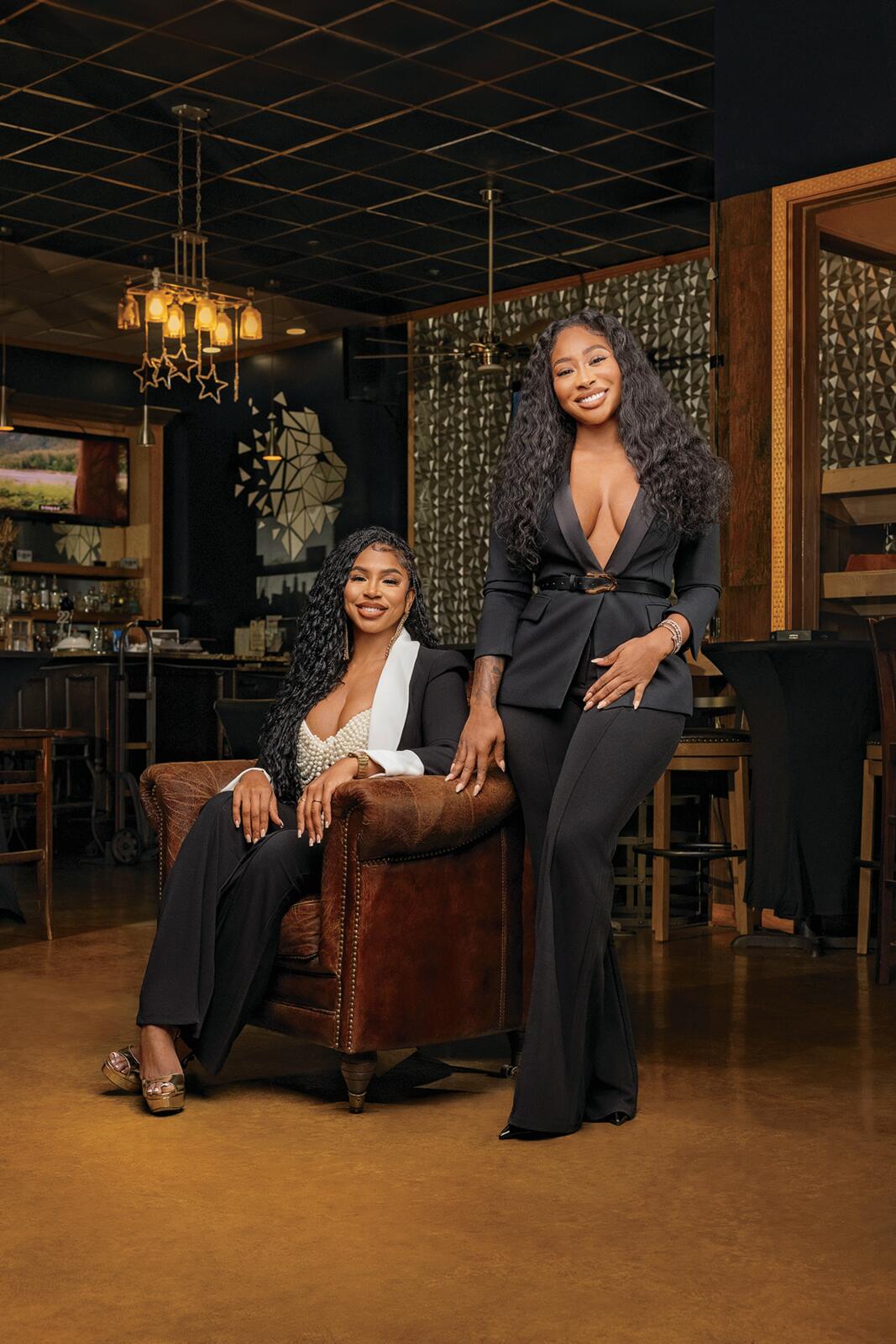
It’s a sentiment echoed by Drea Nicole and Lex P, cohosts of Pour Minds. They use their platform to discuss topics ranging from the modern singles scene to navigating grief—but with their revealing attire, plus a level of style that could take them from courtside to the club, the women are used to facing judgment before they ever utter a word.
“I feel like it’s a double-edged sword,” says Drea. “On one side, because of the aesthetic and how we look, people tend not to take us seriously from jump. But at the same time, I can’t deny the fact that the way we present ourselves is part of the reason why the show has garnered so much attention.”
“Some of the things we say, we’ll get comments like, ‘Oh, they’re dumb, they’re birds, they’re this and that,’ ” Lex concurs. “But if a man said the same thing, or a woman who is not deemed attractive said it? They would be more inclined to hear them out.” The duo became intentional about curating their weekly looks for the YouTube edition of their podcast, becoming one of the first female-led teams that consistently uploads a visual version of their show. They had a defined look that fans could count on, and it helped lead them to becoming viral several times over.
We’ll get comments like, ‘Oh, they’re dumb, they’re birds….’ But if a man said the same thing, or a woman not deemed attractive said it? They would be more inclined to hear them out.
—lex p
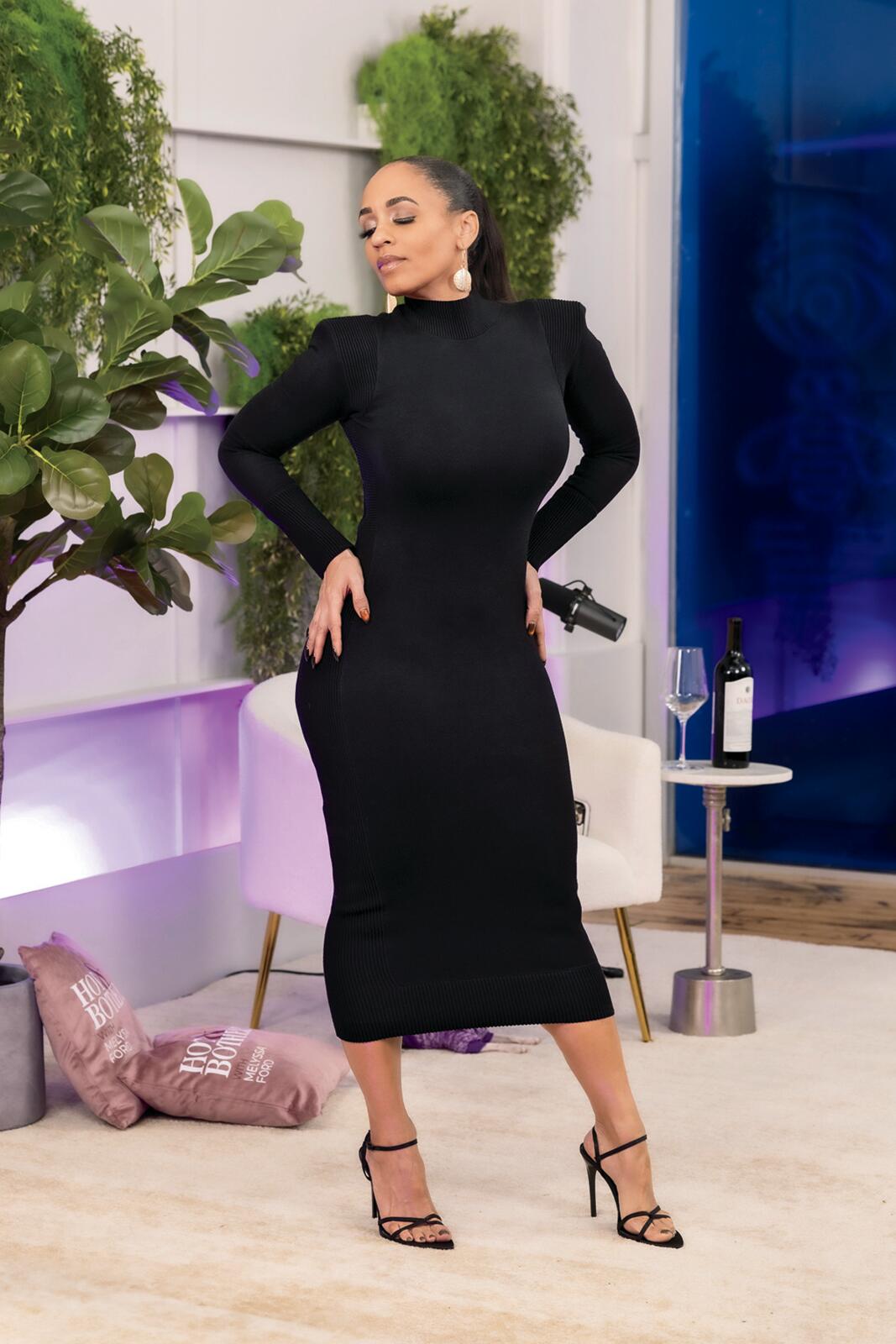
If a sultry aesthetic is a cornerstone of some hosts’ visual narrative, things are a bit different for Melyssa Ford, who spent the earliest parts of her media career as the standard of beauty in hip-hop culture. She has transitioned from sex symbol to cultural commentator; and on her newest program, Hot & Bothered with Melyssa Ford, she’s toning down the high glam and leaning into her true personal style. “Most people would never know just how conservative I am in the way I normally dress,” Ford says. “I love a herringbone fitted blazer. I really love suits. I love slacks. I love white button-downs. I like the way my red readers look, and I like to wear red lipstick with them.”
A major departure from her cohosting duties on one of the top podcasts in the culture, The Joe Budden Podcast, Ford’s solo venture is dedicated to demystifying health and wellness topics—particularly those most pressing for women facing perimenopause. She hopes to shatter taboos and loosen tight lips regarding that particular life passage—a time many women in her generation have stepped into without sufficient knowledge of what’s in store.
“Gen X was confronted with perimenopause and menopause, and we were like, ‘Wait, hold on one second. What?’ No one told us!” she says. In addition to featuring health experts and medical professionals who shed light on the many symptoms, signs and changes in this season of life, Ford wants to let listeners know that despite what the media tells women, aging is a beautiful experience.
“Women are just really, really tired of feeling like they’re supposed to be ashamed of growing older,” she says. “We have a plethora of examples of women who are in their forties and fifties and sixties and seventies and eighties, and they are vibrant women, and they’re gorgeous, and they’re self-sufficient, and they’re all these things we are told that [older] women are not.”
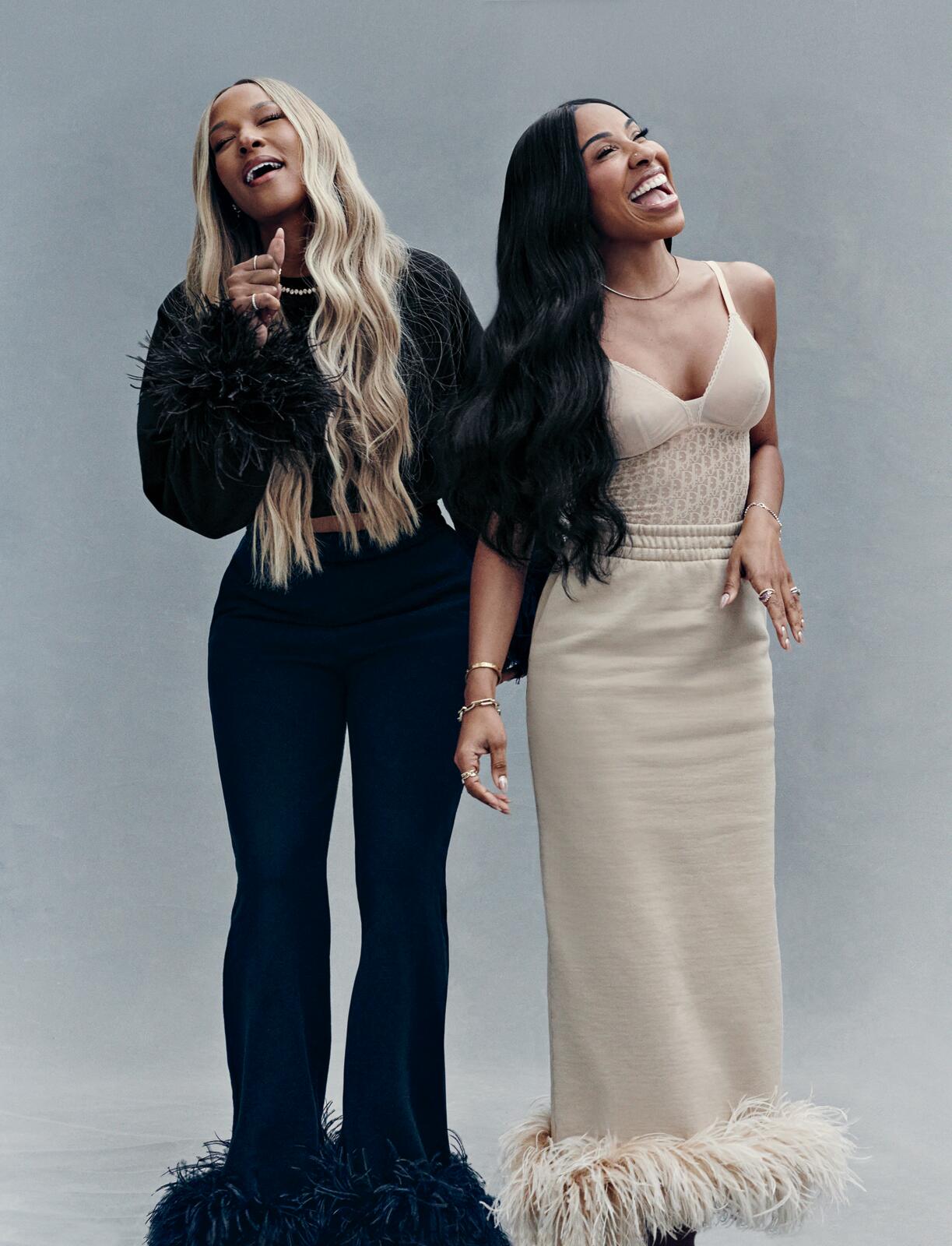
For Everybody’s Crazy, the casual call-in podcast from April McDaniel and Savannah James, keeping things positive, authentic and informative is paramount. “People don’t realize how imperative it is to utilize your voice, to have an impact or a constructive conversation,” says McDaniel. “Even just understanding that what you’re talking about, people are listening to. It’s important to remember they’re feeding themselves with that information.”
Purposely rejecting negativity on their show, longtime friends McDaniel and James instead give personal anecdotes and convivial advice on how to make lemonade with the lemons life gives. With a mission rooted in relatability, the cohosts skip the glam teams and opt for the high-end casual style and DIY makeup (if any) that they go for in their day-to-day lives. “We didn’t want to be highly curated on the sofa,” McDaniel explains. “We just wanted to show up as our best selves. So I think we’ve done a really good job being present in what that looks like.”
“We’re conscious about putting something real into the world, period,” James says of their no-fuss style. “What you see is what you get. I show up to Everybody’s Crazy in the same way I show up in the world.” With skin care her central focus—James even has her own brand on the way later this year—she’s camera-ready with a dab of concealer and a swipe of gloss. “I am a comfort queen,” she says. “I do not like to be bound. I do not like to be uncomfortable.”
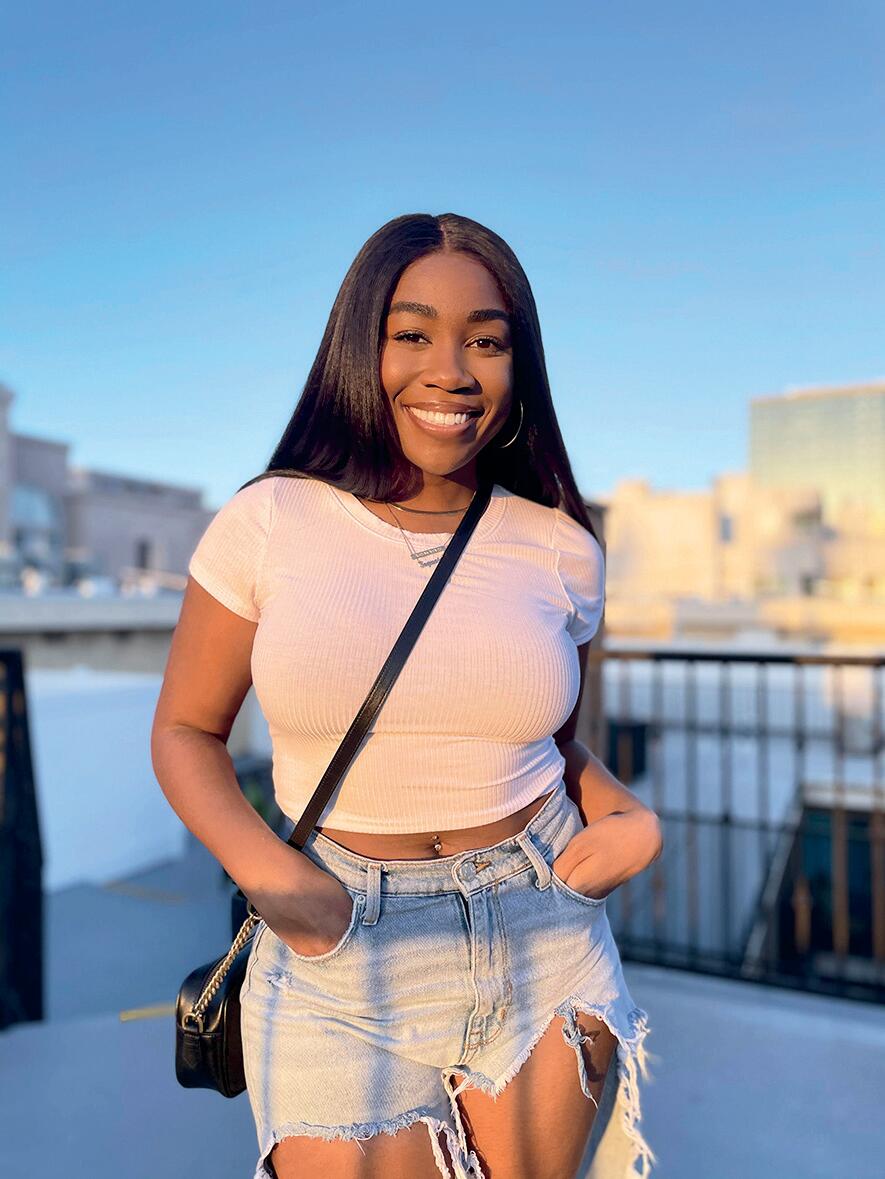
Cool comfort is the cornerstone of Sequoia Holmes’s podcast look as well. With Black People Love Paramore, the host found a creative way to build community—and it’s rooted in her long-gone emo phase. Her main interest now is an examination of some of our often unexpected niche pop-culture interests, from True Crime to The Golden Girls.
Filming her visual component largely from home, Holmes keeps her clothing relaxed, with a band tee nodding to her Hot Topic era and curated glam. She lists makeup as one of her creative outlets. A veteran podcaster of nearly a decade, she has watched the public perception of podcasts slowly sour; but she’s of the opinion that the call to shut off the mics is a “lazy” point of view.
“I think podcasting needs a rebrand,” Holmes says, noting that the clips that stick aren’t always a true reflection of how diverse and exciting the field is. “The loudest and most viral voices tend to be the most inflammatory ones. I think the podcasting market is great. It is diversifying by the second. Everybody can find a podcast that is for them, that they love.” She adds that as podcasts become an increasingly visual medium, many will begin consuming this content without even realizing that’s what it is.
It’s a sentiment echoed by every host we interviewed: More Black women need to pick up the mics. The medium is expanding. The next big innovation is on the horizon, and the path for the next big voices is being cleared. “I just hope,” Holmes says, “that Black women get a big piece of that pie.”